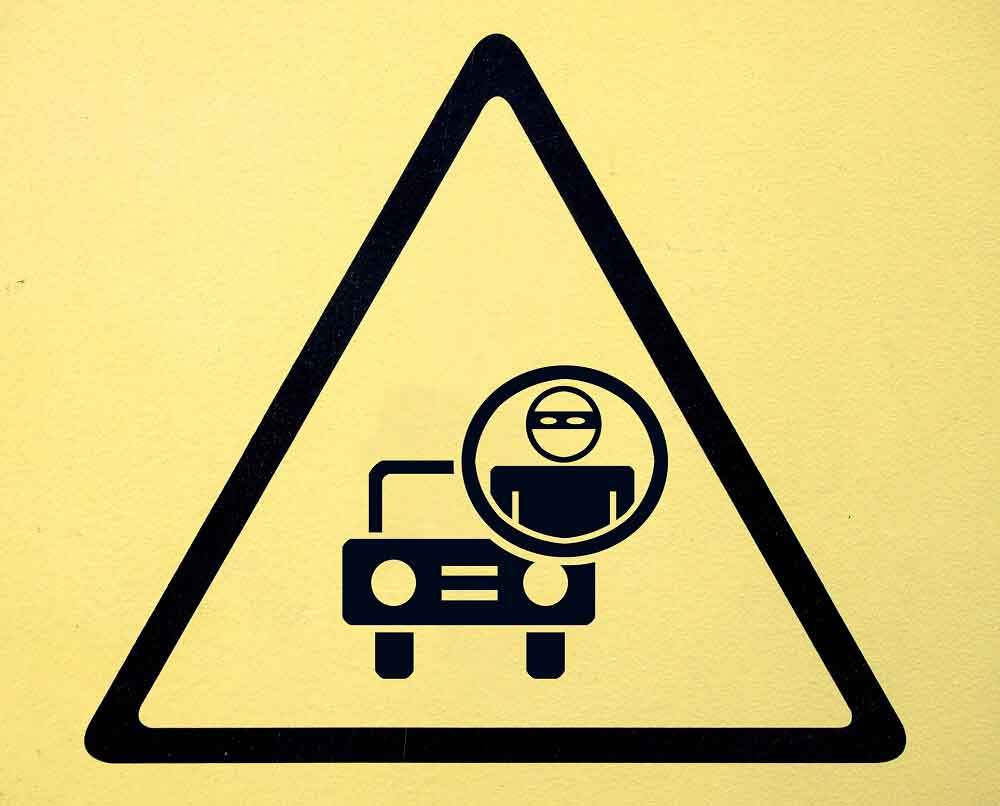Warning on common car-selling scams

When it comes to scams, you would think that the simplicity and brazenness of some of them would be enough to cause alarm bells to ring for any reasonably intelligent person.But look at Queensland's Office of Fair Trading's web pages and it's clear that this isn't necessarily the case. While there's a huge variety of scams to choose from, here's the top 10 motoring-related scams identified by RACQ.
The delivery scam
A really desirable model is advertised for a really good price. The seller is also really accommodating, offering to bring the car to you for inspection. All you have to do is pay a deposit up front that will be refunded if you choose not to buy it. It should come as no surprise that once you pay the deposit, you'll never see the car, or your money again.Tip: Don't part with your money, even a small deposit, unless you're sure it's the car you want to buy.
Buying sight unseen
While not necessarily a scam per se, buying sight unseen has the potential to go badly wrong. But for some reason some people seem to think it's a good idea, or at least an acceptable risk.
Some of the fundamental problems are:
- How do you know the car really exists?
- If it does, is it in the condition described?
- Is it really the car you want?
- Is it what it claims to be?
- Is it the advertiser's car to sell?
Tip: Our prime advice is just don't do it. But if you do choose to take the risk, at least understand that if something goes wrong there probably isn't much anyone can do to help.
Car park sales
Have you ever considered that the seller's kind offer to meet you in some central spot might be more than just a courteous act? If the seller suggests meeting in a park, shopping centre car park or similar, you need to consider if:
- They're trying to conceal where they live..
- Your personal safety is at risk.
- They're actually an unlicensed dealer.
- The car is stolen (particularly if they try to rush the deal and ask for payment in cash).
Tips:
- Always consider your personal safety (particularly if carrying cash).
- Take whatever precautions you consider necessary.
- Don't go alone.
- Don't allow yourself to be rushed.
- Do a Personal Property Security Register check before committing to the purchase.
- If the deal sounds too good to be true, it probably is.
Road test drive-offs
Okay, so this isn't a scam like the others. It's just plain theft. But the outcome is the same – you lose. The common scenario is that during the road test the potential buyer comes up with a reason to pull over and get you out of the car. This can be by force or on the pretext of looking at something. The outcome is that you're left standing at the roadside while your car drives away.
Tips:
- Always consider your personal safety.
- Take whatever precautions you consider necessary.
- Take someone you trust with you on road tests.
- You could also ask to hold the person's licence during the road test or take a photo of it although, understandably, even a legitimate potential buyer may not be comfortable with this.
Outstanding finance
Believe it or not, this still happens. Someone buys a car without doing the basic checks only to have it repossessed by a finance company because a previous owner still owes money on it.
Tip: A $2 Personal Property Security Register check will tell you if the used car you're looking at has a financial interest registered.
Repairable write-offs
The unsuspecting buyer finds out after the fact that their new purchase is a repaired write-off.
Tip: This is another thing a PPSR check would have shown.
Statutory write-offs
This is a simple scam involving caravans. Buy a wrecked caravan from a salvage auction, tart it up, remove the original identifiers, register it as home-built and then sell it cheap to some unsuspecting victim.
Tips:
- Check the ID plate. If it shows home-built but it doesn't look like it was, chances are it's dodgy
- Always get a pre-purchase inspection
Leaving the country – must sell now
Common story elements can include:
- The seller claims to be in the defence force, and is about to be deployed overseas.
- They are leaving in the next couple of days and need to move the car quickly, so the price has been dropped dramatically.
- There's no time for an inspection or it's in some inconvenient place so an inspection isn't possible.
- They ask for the money to be transferred and they will arrange to have the car shipped to you.
Tip: Just don't do it, no matter how good the deal sounds.
Absent seller
The car is advertised at an attractive price. It's usually in some remote location so inspection isn't easy, or possible. And to make the story more interesting, the seller is often overseas, working on an oil rig etc. and isn't easily contactable.
Tip: Again, just don't do it, no matter how attractive it sounds. It isn't worth the risk.
Selling on behalf of a friend or relative
The usual story is that the owner is overseas and no longer has a need for the car so a friend or relative has been asked to sell it on their behalf. A complicating factor with this one is that there will be situations where someone is genuinely disposing of a car for someone else and it can be difficult to tell one from the other. The question you're going to face is, how do you know if the person you're dealing with actually has authority to sell the car and transact the deal?
Tip: Unless you can be absolutely certain that you're dealing with the owner's authorised agent, you'll be taking a huge risk that may result in you losing the car and your money.
Related topics
Things to note
The information in this article has been prepared for general information purposes only and is not intended as legal advice or specific advice to any particular person. Any advice contained in the document is general advice, not intended as legal advice or professional advice and does not take into account any person’s particular circumstances. Before acting on anything based on this advice you should consider its appropriateness to you, having regard to your objectives and needs.
Insurance Products (excluding Travel Insurance) are issued by RACQ Insurance Limited ABN 50 009 704 152 (RACQI) and arranged by its agent, RACQ Distribution Services Pty Ltd (RDS) ABN 35 116 361 650, AFSL 567130 and RDS' authorised representatives (including RACQ Operations Pty Ltd ABN 80 009 663 414, AR No. 234978 (RACQO). Conditions, limits and exclusions apply. RDS and RACQO are in the RACQ group of companies. One of the companies in the RACQ group of companies has a minority shareholding in RACQI.
RDS and RACQO have not taken your personal objectives, circumstances or needs into account when preparing advice regarding insurance products and you will need to consider whether the advice is appropriate for you. Read the Product Disclosure Statement (PDS) and any applicable Supplementary PDS before making a purchase decision on this product. You can also access our Target Market Determinations on this website. RDS receives a commission from RACQI for the policies it arranges. RACQO receives fees paid for services it provides to RDS. Further details about remuneration are available on request prior to purchasing.
Banking and loan products issued by Members Banking Group Limited ABN 83 087 651 054 AFSL/Australian credit licence 241195 trading as RACQ Bank. Terms, conditions, fees, charges and lending policies apply. This is general advice only and may not be right for you. This information does not take your personal objectives, circumstances or needs into account. Read the disclosure documents for your selected product or service, including the Financial Services Guide and the Terms and Conditions, and consider if appropriate for you before deciding.
Except for RACQ Bank, any RACQ entity referred to on this page is not an authorised deposit-taking institution for the purposes of the Banking Act 1959 (Cth). That entity’s obligations do not represent deposits or other liabilities of RACQ Bank. RACQ Bank does not guarantee or otherwise provide assurance in respect of the obligations of that entity, unless noted otherwise.
RACQ Bank subscribes to the Customer Owned Banking Code of Practice which establishes higher standards than the law requires. The Code reflects modern consumer expectations and developments in approaches to issues such as consumer vulnerability, guarantors, and supporting customers through financial hardship. Please read our Customer Owned Banking Code of Practice page for more information.
RACQ Operations Pty Ltd (ABN 80 009 663 414 AR 000234978) and Members Travel Group Pty Ltd (ABN 45 144 538 803 AR 000432492) are acting as an Authorised Representative of the issuer of the insurance, Tokio Marine & Nichido Fire Insurance Co., Ltd. (ABN 80 000 438 291 AFSL 246 548). Any advice set out above is general in nature only, and does not take into account your objectives, financial situation or needs. Before purchasing any travel products, please consider the RACQ Travel Insurance Product Disclosure Statement (PDS) and the Target Market Determinations (TMDs) that apply to these products. Whilst the PDS outlines the Terms and Conditions of these products, the TMDs outline the intended class of customers that comprise the target market for these travel products. This will allow you to consider which products best suit your objectives, financial situation and needs and consider the products appropriateness to your personal circumstances. TMDs also outline matters involving the distribution and the review of these products. The PDS, Supplementary PDS and TMDs for each travel product can be found here.
